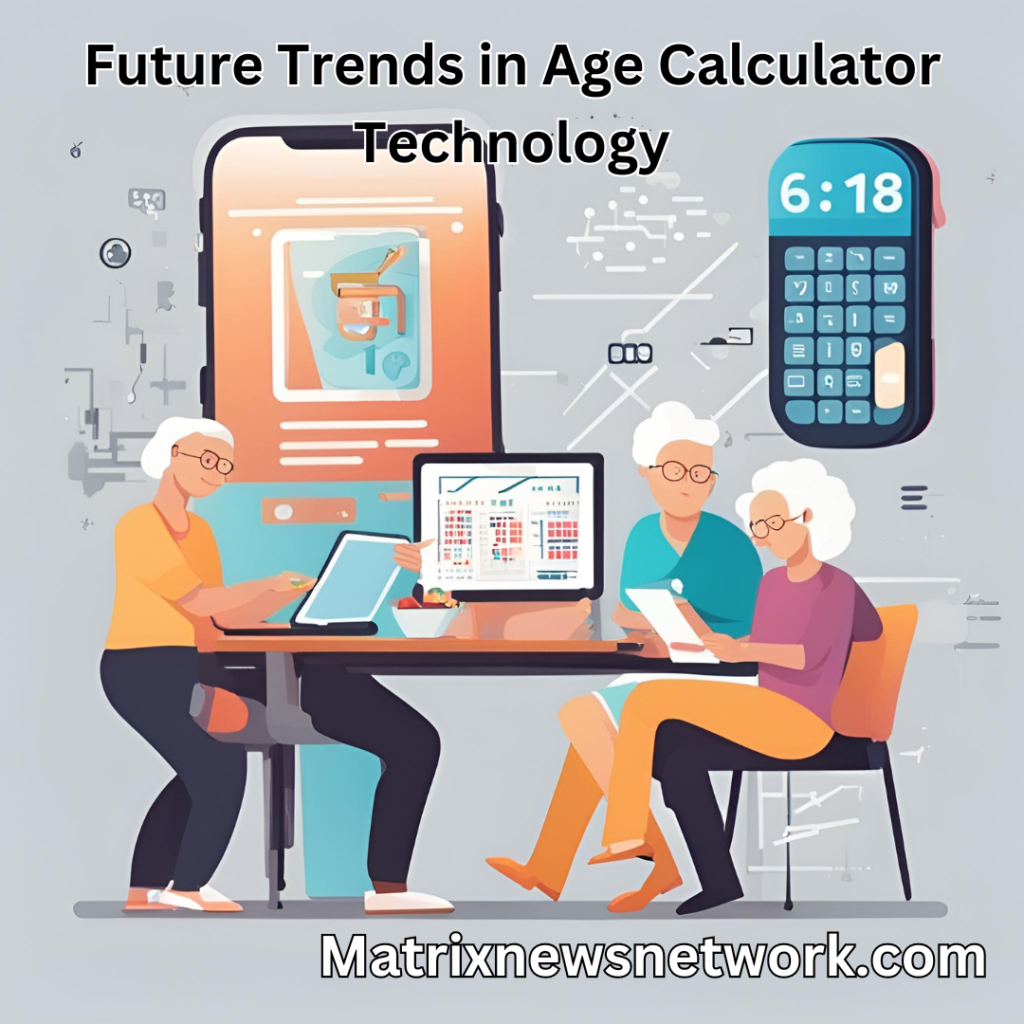Age calculation technology, though seemingly straightforward, is undergoing significant advancements driven by innovations in data analytics, machine learning, and personalized health monitoring. From traditional chronological age determination to more sophisticated biological age assessments, the landscape of age calculator technology is evolving rapidly, promising new insights into health, longevity, and personalized medicine. Let’s delve into the future trends shaping this field.

1. Precision through Biomarkers
Future age calculators will increasingly rely on biomarkers that provide a more accurate reflection of an individual’s biological age. These biomarkers may include genetic indicators, epigenetic modifications, telomere length, and specific protein profiles. By integrating multiple biomarkers into algorithms, age calculators will deliver personalized and precise assessments of biological age, offering insights into health status and potential disease risks.
2. AI and Machine Learning Integration
Advancements in artificial intelligence (AI) and machine learning are revolutionizing age calculation technology. AI algorithms can analyze vast datasets comprising genetic information, lifestyle factors, and health metrics to predict biological age more accurately. These algorithms continuously learn and adapt, refining their predictions based on new data inputs and insights gained from longitudinal studies.
3. Wearable Technology for Real-Time Monitoring
The future of age calculation lies in wearable devices capable of continuously monitoring various physiological parameters. These wearables can track heart rate variability, sleep patterns, activity levels, and stress markers in real-time. By integrating this data with advanced algorithms, age calculators can provide dynamic assessments of biological age, allowing individuals to monitor and optimize their health proactively.
4. Personalized Aging Curves
Age calculators of the future will move beyond standardized population-based metrics to develop personalized aging curves. By considering an individual’s unique genetic makeup, lifestyle choices, and environmental exposures, these calculators will offer tailored insights into aging trajectories. This personalized approach will enable targeted interventions to slow down aging processes and mitigate disease risks.
5. Integration with Health Records and Genomics
As electronic health records and genetic testing become more prevalent, age calculators will leverage these data sources to enhance their accuracy. By integrating comprehensive health records and genetic profiles, age calculators can identify specific factors contributing to accelerated or decelerated aging. This integration will enable more personalized and effective strategies for preventive healthcare.
6. Ethical Considerations and Privacy Protocols
With the increasing use of sensitive health data in age calculation technology, robust ethical frameworks and privacy protocols will be essential. Future trends will focus on ensuring transparency, informed consent, and data security to maintain public trust in these technologies. Striking a balance between innovation and privacy protection will be critical for the responsible development and deployment of age calculator tools.
7. Predictive Analytics for Longevity and Healthspan
One of the most exciting prospects of advanced age calculation technology is its potential to predict longevity and healthspan. By analyzing diverse datasets and patterns of aging, future age calculators could forecast an individual’s risk of age-related diseases and estimate their life expectancy. This predictive capability could revolutionize healthcare by enabling targeted interventions to extend healthy lifespans.
ALSO READ : Using Age Calculators for Retirement Planning
In conclusion, the future of age calculator technology is poised for remarkable growth and innovation. By harnessing the power of biomarkers, AI, wearable devices, personalized data analytics, and ethical considerations, age calculators will evolve into powerful tools for understanding and optimizing human aging. These advancements hold immense promise for revolutionizing preventive healthcare and empowering individuals to make informed decisions about their health and longevity.
One thought on “Future Trends in Age Calculator Technology”